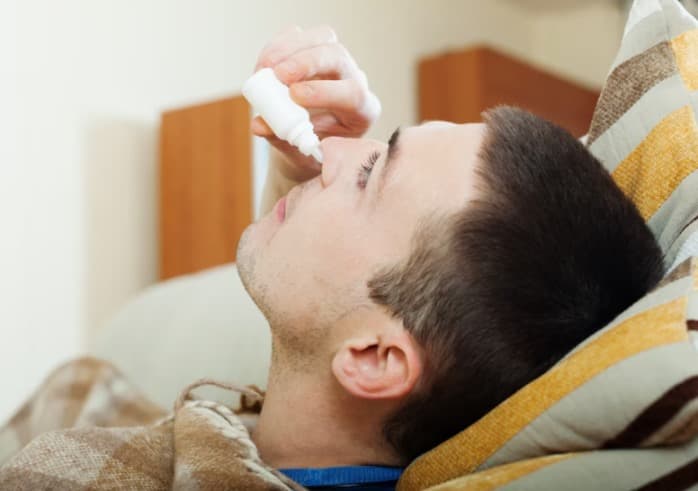Nasal sprays are commonly used to relieve nasal congestion and allergy symptoms. However, just like any other medication, nasal sprays have a shelf life and should not be used beyond their expiration date. Using an expired nasal spray can be harmful and can cause a range of problems.
What happens when nasal spray expires?
When a nasal spray expires, its chemical composition may change, leading to a number of potential problems, including:
- Reduced effectiveness: The active ingredients in the nasal spray may break down over time, reducing its ability to relieve nasal symptoms.
- Increased risk of infection: Expired nasal sprays may have lost their ability to prevent bacterial growth, allowing harmful bacteria to grow in the bottle or on the nasal mucosa.
- Irritation or damage to nasal passages: Expired nasal sprays may contain chemicals that can cause irritation, inflammation or even damage to the nasal passages.
- Allergic reactions: The inactive ingredients in expired nasal sprays can become a source of allergic reactions.
- Adverse effects: Expired nasal sprays may cause unintended side effects or adverse reactions.
Therefore, it is important to dispose of expired nasal sprays and replace them with a new, unexpired product to ensure safe and effective treatment.
Is it safe to use expired nasal spray?
Expired nasal sprays may not be able to deliver the correct dosage of medication, which could result in inadequate symptom relief. Additionally, the active ingredients in the nasal spray may have degraded over time, rendering the medication ineffective.
Furthermore, expired nasal sprays may become contaminated with bacteria, leading to potential infections. This is particularly dangerous for individuals with weakened immune systems or preexisting medical conditions, such as allergies or respiratory problems.
How to tell if your nasal spray is expired?
The expiration date of your nasal spray should be printed on the packaging or the bottle itself. If the expiration date has passed, you should not use the spray.
Secondly, check the appearance of the nasal spray. If the liquid looks cloudy or has particles floating in it, this may be a sign of contamination or degradation of the medication. In this case, it is best not to use the nasal spray and dispose of it properly.
Thirdly, pay attention to the smell and taste of the nasal spray. If the medication has an unusual or foul odor, or if it tastes different than usual, this may be another sign that it has expired or become contaminated.
Lastly, if you are unsure whether your nasal spray is expired or not, it is best to consult with a healthcare professional for advice. They can help you determine if the medication is safe to use or if you need to dispose of it and obtain a new prescription.
How to store your nasal spray properly?
Proper storage of nasal spray is important to maintain the effectiveness and safety of the medication. Here are some tips on how to store your nasal spray properly:
- Follow the storage instructions on the packaging or as directed by your healthcare provider. Some nasal sprays may need to be stored in the refrigerator, while others may be stored at room temperature.
- Keep the nasal spray away from heat and direct sunlight, which can cause the medication to degrade or lose its potency. It is best to store nasal sprays in a cool, dry place.
- Avoid exposing the nasal spray to extreme temperatures. Most nasal sprays should be stored at temperatures between 15-25°C (59-77°F). However, some medications may require specific temperature ranges for proper storage, so be sure to check the instructions.
- Do not freeze nasal sprays, as this can damage the medication and cause it to become ineffective.
- Keep the nasal spray out of reach of children and pets, as some medications can be harmful if ingested.
- You should keep the spray bottle tightly closed when not in use.
By following these storage tips, you can help ensure the effectiveness and safety of your nasal spray medication. If you have any questions or concerns about how to store your nasal spray properly, consult with your healthcare provider or pharmacist.
What should you do if you use expired nasal spray?
If you accidentally use an expired nasal spray, you should monitor yourself for any adverse effects or symptoms.
Using expired nasal spray may cause inadequate symptom relief or potential health risks such as infections due to bacterial contamination. Common symptoms that may arise from using expired nasal spray include:
- Irritation or burning sensation in the nose
- Increased nasal congestion
- Runny nose
- Sneezing
- Headache
- Dizziness
- Nausea
- Breathing difficulties
If you experience any of these symptoms after using an expired nasal spray, you should stop using the medication and consult with your healthcare provider. In some cases, they may recommend that you seek medical attention immediately, especially if you experience severe symptoms or an allergic reaction.
Final Word
In conclusion, using expired nasal spray may result in inadequate symptom relief or potential health risks. It is important to always check the expiration date on your nasal spray before use and to store it properly.
To avoid the risks associated with using expired nasal spray, it is best to dispose of any expired medication properly and obtain a new prescription as needed. By doing so, you can help ensure the effectiveness and safety of your nasal spray medication.
